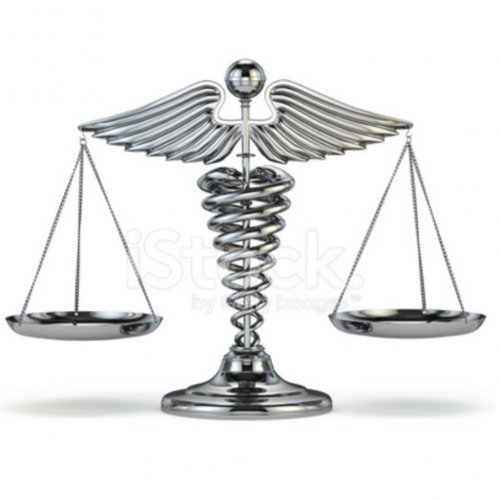Best Due Diligence Lawyers in Chad
Share your needs with us, get contacted by law firms.
Free. Takes 2 min.
Or refine your search by selecting a city:
List of the best lawyers in Chad
About Due Diligence Law in Chad
Due diligence in Chad primarily involves the comprehensive appraisal and investigation of a business or individual before entering into a contractual agreement. This process is crucial for minimizing risks and ensuring compliance with local legal requirements. In Chad, due diligence is often applied in contexts such as mergers and acquisitions, real estate transactions, corporate inceptions, and contractual agreements. The legal framework governing due diligence in Chad is tailored to align with the country's commercial code and other relevant regulations, ensuring that all necessary data is gathered to make informed business decisions.
Why You May Need a Lawyer
There are several scenarios where seeking legal advice in due diligence becomes essential:
- Mergers and Acquisitions: Evaluating the legal, financial, and operational health of another company.
- Real Estate Transactions: Ensuring the legitimacy and legality of property titles and any encumbrances.
- Joint Ventures: Identifying potential liabilities and understanding the legal landscape of partnerships.
- Compliance: Navigating complex regulatory frameworks to ensure all aspects of a business meet legal standards.
- Risk Assessment: Conducting a thorough analysis of any potential risks involved in a business transaction.
Legal expertise can provide insights and guidance, helping mitigate risks and ensuring legal compliance.
Local Laws Overview
The legal framework for due diligence in Chad is shaped by the OHADA (Organization for the Harmonization of Business Law in Africa) regulations to which Chad is a signatory. Key aspects include:
- Company Law: Includes rules about business registration, formation, administration, and dissolution.
- Contract Law: Governs the drafting and enforcement of agreements, ensuring that they comply with local standards.
- Property Law: Details legal requirements for property ownership and transactions.
- Tax Law: Regulates tax obligations and duties in various business transactions.
- Compliance and Anti-Corruption Standards: Includes laws that prevent bribery and ensure ethical business practices.
Frequently Asked Questions
What is the purpose of due diligence?
Due diligence is conducted to assess the potential risks and benefits associated with a business transaction, ensuring that stakeholders make informed decisions while complying with legal requirements.
Can due diligence be conducted internally?
While some aspects of due diligence can be handled internally, it is often beneficial to involve legal professionals who can provide objective analysis and ensure all legal aspects are adequately addressed.
How long does the due diligence process typically take in Chad?
The length of the due diligence process varies significantly depending on the complexity of the transaction and the thoroughness required, usually ranging from a few weeks to several months.
What are common challenges in conducting due diligence in Chad?
Common challenges include navigating local regulatory frameworks, language barriers, and accessing reliable data and documentation.
Is due diligence mandatory for all business transactions in Chad?
While not all transactions require due diligence by law, it is a recommended best practice for significant investments, mergers, and acquisitions.
What happens if due diligence reveals issues?
Identifying issues during due diligence allows parties to renegotiate terms, address legal non-compliance, or reconsider the transaction entirely to avoid potential liabilities.
How is confidentiality maintained during due diligence?
Confidentiality agreements are often employed to protect sensitive information exchanged during the due diligence process.
Can due diligence affect the valuation of a company or asset?
Yes, findings from due diligence can impact negotiations and the valuation of a company or asset based on identified risks or liabilities.
Who typically conducts due diligence?
Due diligence is usually conducted by teams that may include legal professionals, financial experts, and industry specialists.
What documents are typically reviewed during due diligence?
Key documents include financial statements, legal agreements, compliance records, company policies, and property title documents, among others.
Additional Resources
For further assistance on due diligence in Chad, consider reaching out to:
- The Chadian Ministry of Justice for guidance on local laws and regulations.
- The OHADA Secretariat for resources on business law harmonization.
- Professional legal firms in Chad specializing in corporate law and business transactions.
Next Steps
If you require legal assistance in due diligence, consider the following steps:
- Identify your specific legal needs and the nature of the transaction.
- Research and consult with legal professionals with expertise in due diligence and Chadian law.
- Prepare and gather relevant documents and information for the legal consultation.
- Discuss your concerns and goals with your legal advisor to develop a tailored due diligence plan.
Lawzana helps you find the best lawyers and law firms in Chad through a curated and pre-screened list of qualified legal professionals. Our platform offers rankings and detailed profiles of attorneys and law firms, allowing you to compare based on practice areas, including Due Diligence, experience, and client feedback.
Each profile includes a description of the firm's areas of practice, client reviews, team members and partners, year of establishment, spoken languages, office locations, contact information, social media presence, and any published articles or resources. Most firms on our platform speak English and are experienced in both local and international legal matters.
Get a quote from top-rated law firms in Chad — quickly, securely, and without unnecessary hassle.
Disclaimer:
The information provided on this page is for general informational purposes only and does not constitute legal advice. While we strive to ensure the accuracy and relevance of the content, legal information may change over time, and interpretations of the law can vary. You should always consult with a qualified legal professional for advice specific to your situation.
We disclaim all liability for actions taken or not taken based on the content of this page. If you believe any information is incorrect or outdated, please contact us, and we will review and update it where appropriate.
Browse due diligence law firms by city in Chad
Refine your search by selecting a city.








